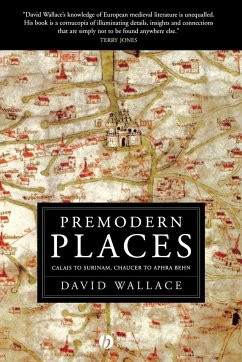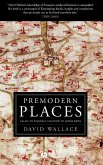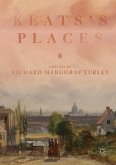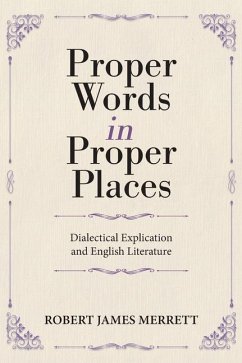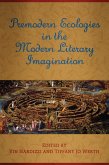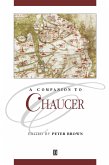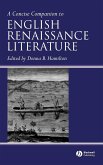This book recovers places in the mental mapping of medieval and Renaissance writers, from Chaucer to Aphra Behn. Beginning with Calais, peopled by the English from 1347 to 1558, and ending with Surinam, traded away for Manhattan in 1667, this well-illustrated book recreates the distinctive cultural life of a range of locations: from Flanders which led the world in technological innovations; to Somerset, which provided a fitting home for Dante; to the Canaries (the Fortunate Islands), which formed the limits of western dreaming. The book's exploration of premodern places features fascinating vignettes, such as an English merchant learning love songs in Calais, coupled with insights into broader economic narratives of political, technological, religious, and economic change. In particular, it provides long geneaologies of blackness and whiteness, race and slavery, in the premodern world.
Hinweis: Dieser Artikel kann nur an eine deutsche Lieferadresse ausgeliefert werden.
Hinweis: Dieser Artikel kann nur an eine deutsche Lieferadresse ausgeliefert werden.
"David Wallace's knowledge of European medievalliterature is unequalled. His book is a cornucopia of illuminatingdetails, insights and connections that are simply not to be foundanywhere else." Terry Jones
"My Cinderella prize for the year's most underratedbook goes to David Wallace, whose Premodern Placesmixes romance and bizarrerie in a study of medieval and Renaissanceideas about geography and locality." JonathanKeates, The Spectator 'Book of the Year' feature,2004
"This is one of the sharpest and most imaginative books ofliterary criticism I've read in many years." PeterHulme, University of Essex
"Offering illuminating genealogies for a range of authorsand literary texts, Premodern Places radically questionsmany assumptions about historical as well as geographic boundaries.... this book asks both premodernists and postcolonialists torethink their disciplines and make urgent connections across spaceand time." Ania Loomba, University ofPennsylvania
"... a most brilliant representative of PostcolonialMedieval Studies." José Rabasa,University of California
"My Cinderella prize for the year's most underratedbook goes to David Wallace, whose Premodern Placesmixes romance and bizarrerie in a study of medieval and Renaissanceideas about geography and locality." JonathanKeates, The Spectator 'Book of the Year' feature,2004
"This is one of the sharpest and most imaginative books ofliterary criticism I've read in many years." PeterHulme, University of Essex
"Offering illuminating genealogies for a range of authorsand literary texts, Premodern Places radically questionsmany assumptions about historical as well as geographic boundaries.... this book asks both premodernists and postcolonialists torethink their disciplines and make urgent connections across spaceand time." Ania Loomba, University ofPennsylvania
"... a most brilliant representative of PostcolonialMedieval Studies." José Rabasa,University of California

